Ecological agriculture – the key to sustainable agriculture
- Developing ecological agriculture is one of the orientations that the Party and the State are very interested in. This is also a long-term vision for Vietnam to realize its global commitment to climate change, towards Net Zero by 2050. Looking back at the development process of the agricultural sector, how do you evaluate this model?

- It can be said that after 80 years of development, the Agriculture and Environment sector has made great strides. Particularly in the agricultural sector, from a country that had to import food in the late 80s of the last century, we have quickly become a food exporter in the world . This is a very proud achievement!
There is a very special point – although Vietnam is an agricultural exporting country, the land area per capita is very small. Therefore, to ensure enough food to serve domestic needs and export, we have to intensively use chemical fertilizers, which in the long run will affect the ecological balance and environment.
From that reality, ecological agriculture has been in the beginning of implementation for decades, with the model of garden - pond - barn, garden - pond - barn - forest... but only on a small scale. After that, we focused on researching ecological agricultural models to cultivate in a more sustainable direction, such as arranging a reasonable crop structure with the model of two rice crops and one winter crop in the North...
In the context of climate change, developing ecological agriculture has become an inevitable trend. Since 2000, we have been determined to transition to truly ecological agriculture, with the highest political commitments aimed at sustainable development. In particular, the XIII Congress Documents determined: " Continue to implement the policy of restructuring the agricultural sector, developing the rural economy associated with building new rural areas in the direction of ecological agriculture, modern rural areas and civilized farmers" . This is an orientation that is very consistent with the general development trend of green transformation, digital transformation, and adaptation to climate change.
Realizing the Party's policy, we have achieved many positive results, with many innovative models in localities on developing ecological agriculture suitable to the ecological conditions of the region.
A typical example is the Project of 1 million hectares of high-quality, low-emission rice in the Mekong Delta. We have initially successfully applied sustainable farming processes, helping to reduce the use of pesticides and chemical fertilizers, increasing farmers' income when rice prices increased by 10-20%. This low-emission rice product is welcomed by high-standard markets such as Japan and the EU. In addition, the organic agricultural production movement with PGS certification has expanded in many provinces with organic vegetables and rice products to meet consumer demand....
In mountainous areas such as the Central Highlands and the Northwest, there are models of combined crop cultivation and livestock farming, and agroforestry intercropping coffee trees with fruit trees, both increasing income and reducing carbon emissions, moving towards the goal of carbon neutrality by 2050... These are very encouraging results of the transition to ecological agriculture towards sustainable agriculture.
Credit policy needs to be suitable for farmers.
- In the current context, what are the challenges that need to be addressed to promote the transition to ecological agriculture on a large scale, sir?
- Although initial results have been very positive, to deploy ecological agriculture on a large scale, synchronous policies are still needed.
The techniques of ecological agriculture are very diverse, there cannot be a solution that is suitable for all regions. This requires the parties to research together to find a method suitable for each locality.
Currently, there are many projects supporting the development of ecological models, but they have not yet met the needs of rapid transformation of localities; especially the lack of technical guidance documents as well as agricultural extension documents on ecological agriculture suitable to local conditions. The agricultural extension system is in the process of reform. In the coming time, this system needs to prioritize focusing on ecological agriculture.
In particular, resource mobilization is a difficult problem. We have many projects by field related to each part of the agricultural ecosystem, such as land, plant protection, biodiversity, etc. However, we are lacking a comprehensive national project to promote ecological agriculture, although ecological agriculture has been integrated into the National Action Plan for Transforming a Transparent, Responsible and Sustainable Food System by 2030, leading to localities still being confused and having difficulty in mobilizing resources; therefore, there needs to be a general project to guide localities.
We also need credit programs to support farmers in developing ecological agriculture, such as green credit, and they must be designed to suit smallholder farmers.
The application of digital technology to clarify the origin, quality and count greenhouse gas emissions is equally important. After all, ecological agriculture will find it difficult to develop if the products are not accepted by consumers. Therefore, it is necessary to promote communication about ecological agriculture and the benefits of ecological agricultural products to create consumer confidence.
The nature of ecological agriculture is now much broader, including both technical and economic and social factors, so it is not only the work of the Department of Agriculture and Environment, but requires the participation of ministries, branches and localities to achieve the multi-objectives of food security, nutrition, farmers' income as well as reducing greenhouse gas emissions. It is necessary to develop plans at the local level, especially at the provincial level, for the development of ecological agriculture.
- Ecological agriculture combined with tourism is one of the important directions to increase value. In your opinion, how can we encourage the development of this model?
- The 13 principles of ecological agriculture also mention the development of agriculture associated with ecotourism, rural tourism, and community tourism. This is also an experience that developed countries have done very well.
In Vietnam, there are many models of ecological agriculture combined with tourism, such as in the Mekong Delta, mountainous areas, and difficult areas.
For this model to achieve better results, it is necessary to change the policy on allowing the use of agricultural land in a more appropriate way. If in the past agricultural land was mainly allowed for cultivation, it is possible to allow the construction of some small infrastructure to serve tourism, and when necessary, it can still be converted to agricultural production. Along with that, it is necessary to pay attention to training and coaching for farmers, especially in difficult areas, to replicate the ecological agriculture - tourism model at the regional level.
Currently, some localities have just developed tourism but have not developed agricultural products to serve tourists. Therefore, it is necessary to have a strategy to go "two legs in parallel": agriculture combined with tourism - developing clean, safe local products, with good services to serve tourists.
Thank you!
Source: https://daibieunhandan.vn/can-co-de-an-tong-the-ve-nong-nghiep-sinh-thai-10395307.html






![[Photo] Prime Minister Pham Minh Chinh attends a conference to review one year of deploying forces to participate in protecting security and order at the grassroots level.](https://vphoto.vietnam.vn/thumb/1200x675/vietnam/resource/IMAGE/2025/11/12/1762957553775_dsc-2379-jpg.webp)
![[Photo] Highways passing through Dong Nai](https://vphoto.vietnam.vn/thumb/1200x675/vietnam/resource/IMAGE/2025/11/12/1762940149627_ndo_br_1-resize-5756-jpg.webp)





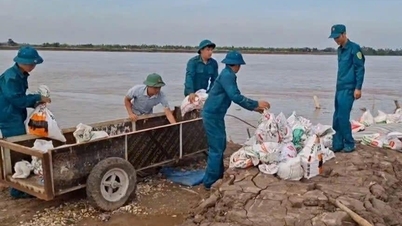





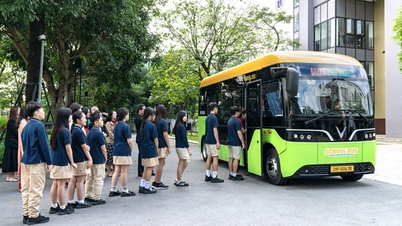

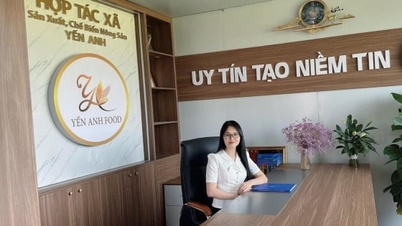

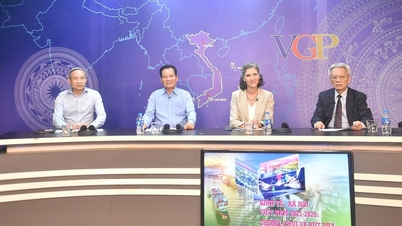









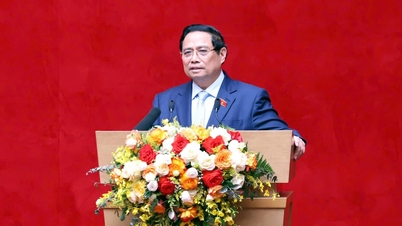

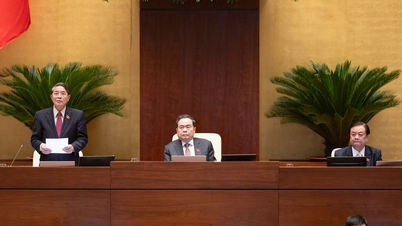
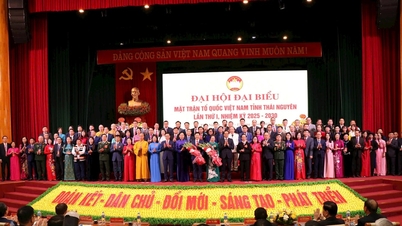























































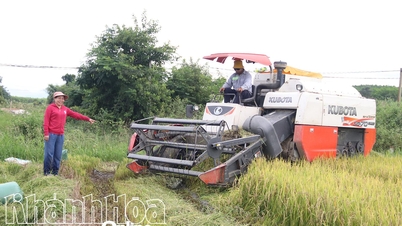



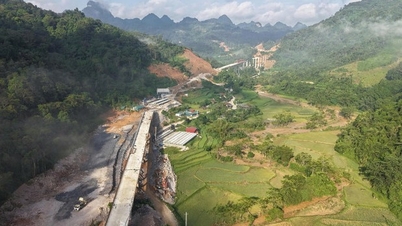








![Dong Nai OCOP transition: [Article 3] Linking tourism with OCOP product consumption](https://vphoto.vietnam.vn/thumb/402x226/vietnam/resource/IMAGE/2025/11/10/1762739199309_1324-2740-7_n-162543_981.jpeg)







Comment (0)